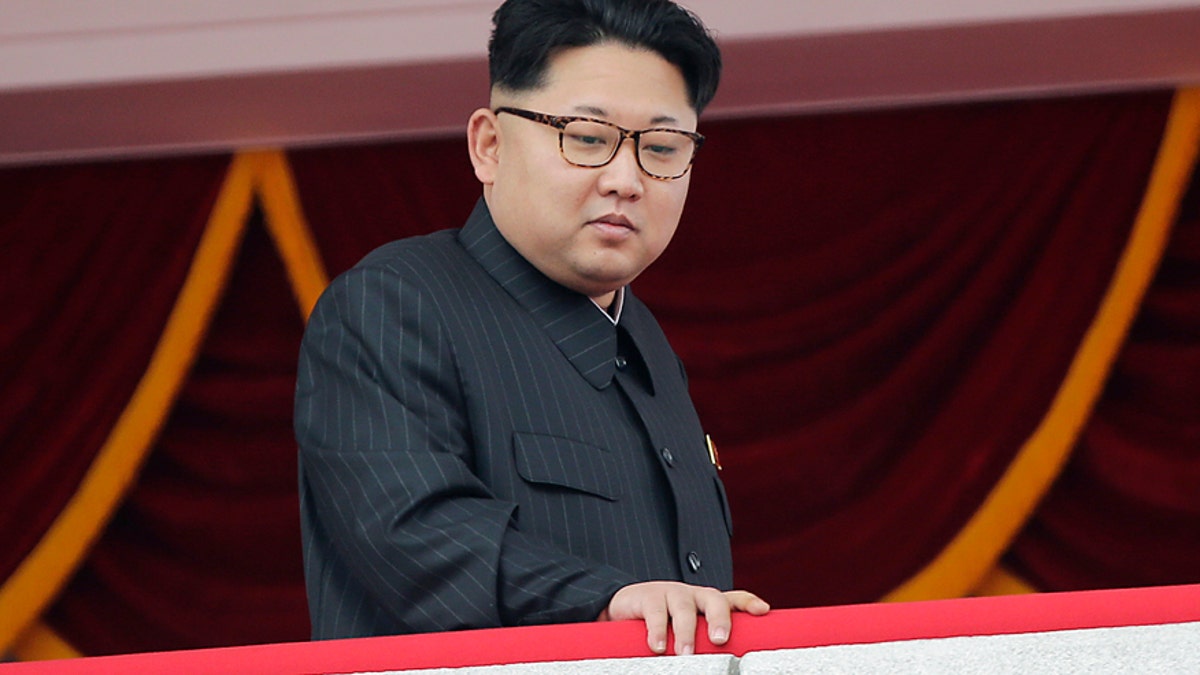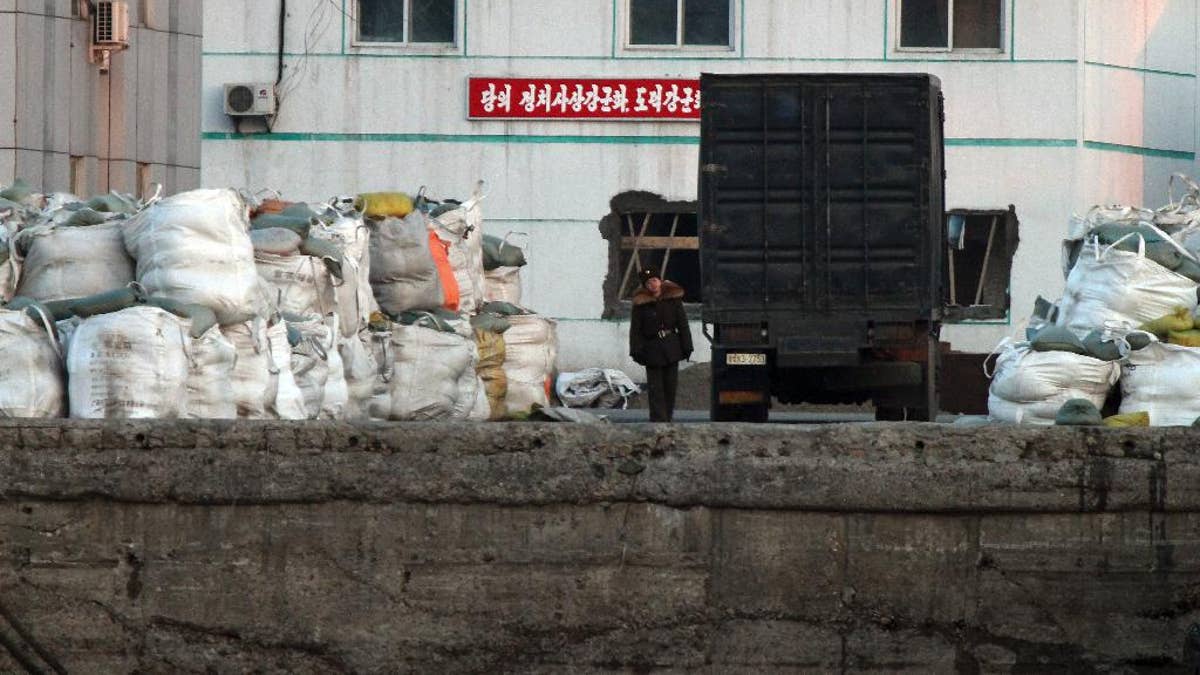
In this May 10, 2016, photo, North Korea's leader Kim Jong Un watches a parade from a balcony at the Kim Il Sung Square in Pyongyang. (AP Photo/Wong Maye-E)
The world is looking to clamp down on North Korea and, this time, China appears to be on board.
The United Nations Security Council is set to vote Wednesday on sanctions aimed at punishing the Hermit Kingdom for its nuclear and ballistic missile tests.
China, one of the council's five permanent members - all of whom have veto power - has typically protected its trading partner. But the powerful nation has signaled it agrees with the proposed measures, which target North Korea's coal and metal exports and is intended to inflict economic pain on the regime.
“We are getting very close to moving forward on Security Council measures responding to North Korea's September 9th nuclear test, the latest of five tests,” a U.S. official familiar with the resolution told Fox News.
“Pyonyang has prioritized the pursuit of nuclear weapons overjust about everything else … our action [Security Council sanctions] will impede the [North Korean] regime's ability to continue these programs," the official said.
WORLD CONDEMNS NORTH KOREA'S 'BIGGEST' NUCLEAR TEST
The U.S. and China have been engaged in drafting the extensive resolution for more than two months and have consulted with the other Permament Five members of the Security Council-- Russia, France and the United Kingdom – in an attempt to reach consensus to finalize a draft resolution that will impose stiffer measures against Pyongyang for its “continued defiance of UN Sanctions.” The resolution also demands an end to nuclear tests and weaponization research.
A U.N. resolution adopted in March imposed the strongest economic sanctions to date against Pyongyang after North Korea claimed that it detonated a hydrogen bomb in January. The new resolution seeks to close loopholes in that measure, including an annual cap on North Korea’s coal exports of 7.5 million tons.
The new sanctions will also prohibit sales of ships and helicopters to North Korea and impose A travel BAN and asset freezes on certain North Korean nationals and organizations for their role in illicit nuclear and ballistic missile programs. Overall, the new punitive measures are designed to slash a total of $800 million from North Korea's $3 billion in yearly exports.

a North Korean soldier walks past a truck park near the goods pile up on a dockyard in Sinuiju, North Korea, as seen from Dandong in northeastern China's Liaoning province. (AP)
China’s support of the new measures, including the coal ban, comes at a curious time. Last September they bought a record amount of North Korean coal, according to a report from Reuters.
China imported nearly 2.5 million tons of coal from North Korea in August despite the March sanctions. China’s imports of North Korean coal are up nearly 12 percent for the year so far, due partly to a sanctions loophole for materials exported "exclusively for livelihood purposes."
Policy experts theorize that China’s support on tightening of sanctions is aimed at further positioning itself as a global leader.
“China is a large, emerging country that now has greater international needs,” Rodger Baker, vice president of Strategic Analysis at Stratfor, told FoxNews.com. ‘It’s actually a delicate situation. As the world is uncertain of what the U.S. will do with a new president coming in, China is looking to shape themselves in the next year or two as having a willingness to be a part of solutions.”
Baker said China mostly uses North Korean coal for steel production and that if it backs the new sanctions, it may be due to a recent slowdown in production, rather than any concern about North Korea's nuclear program.
